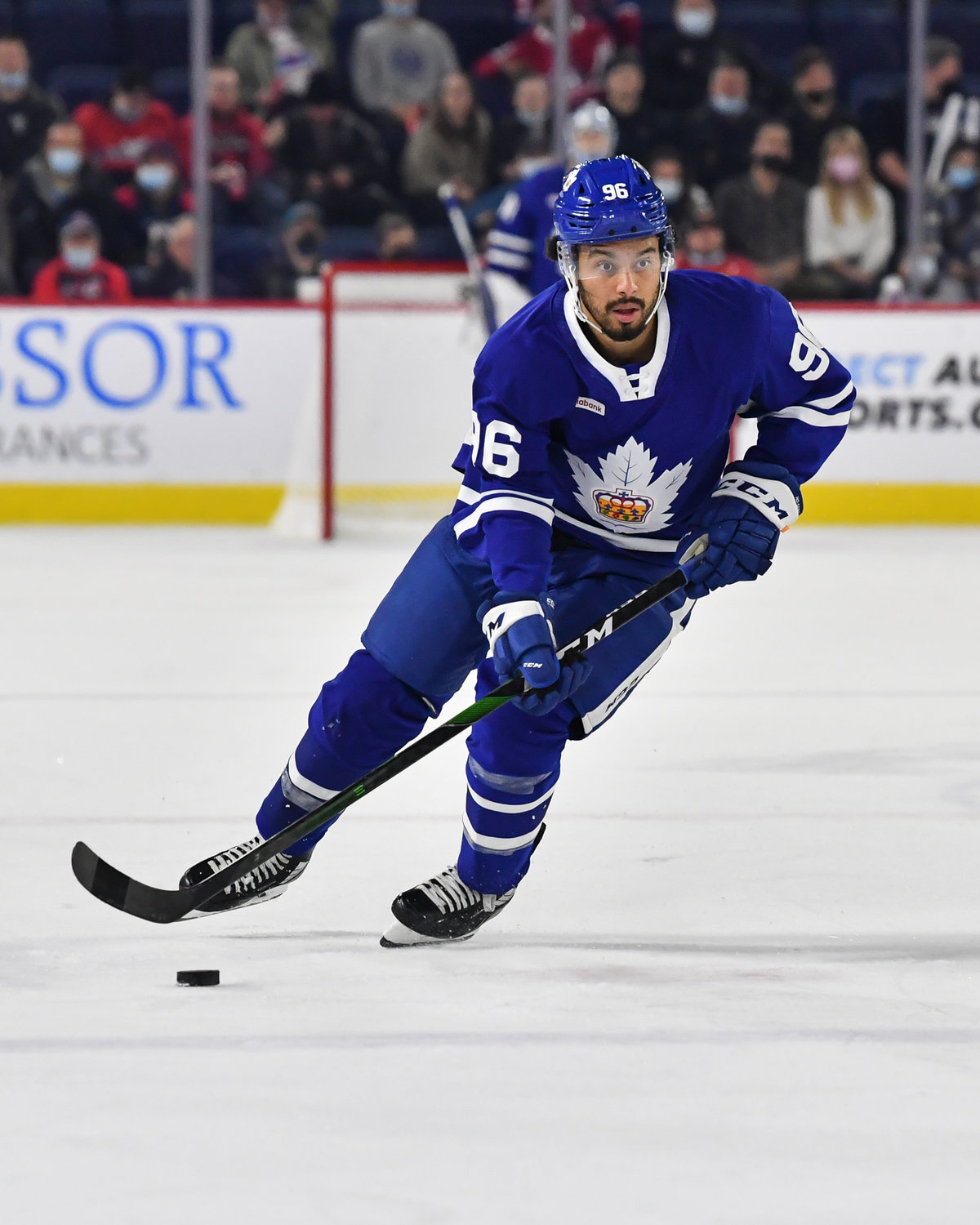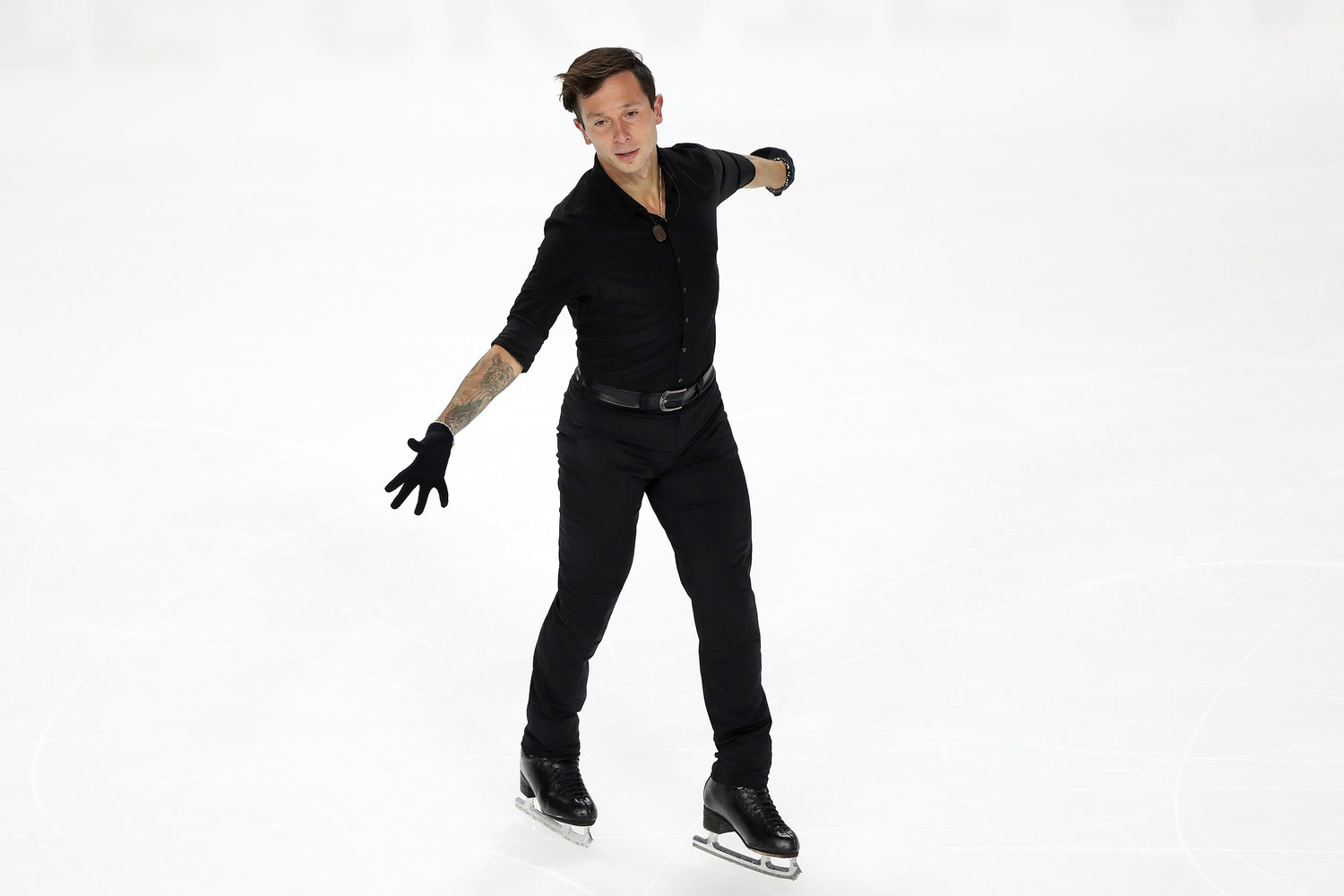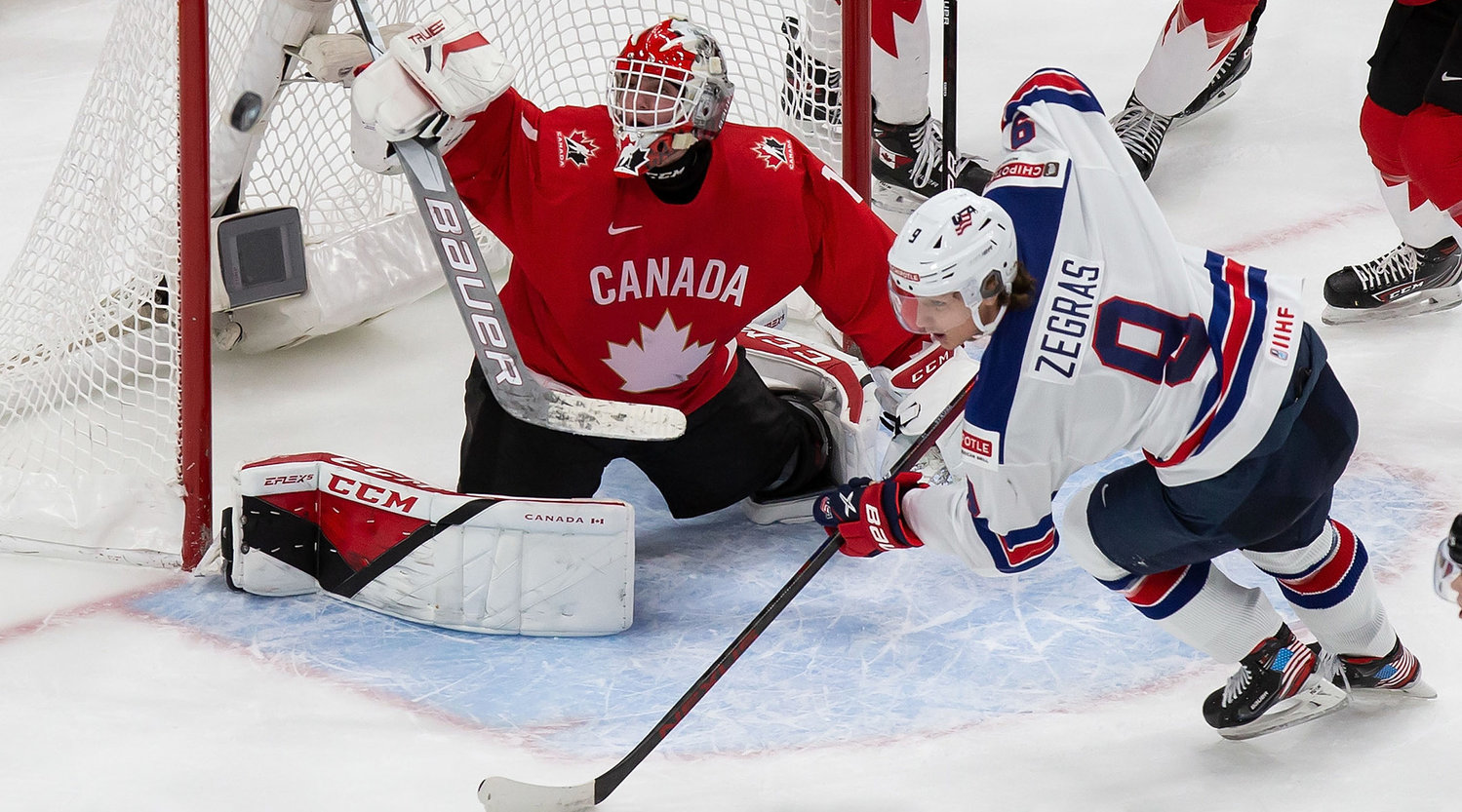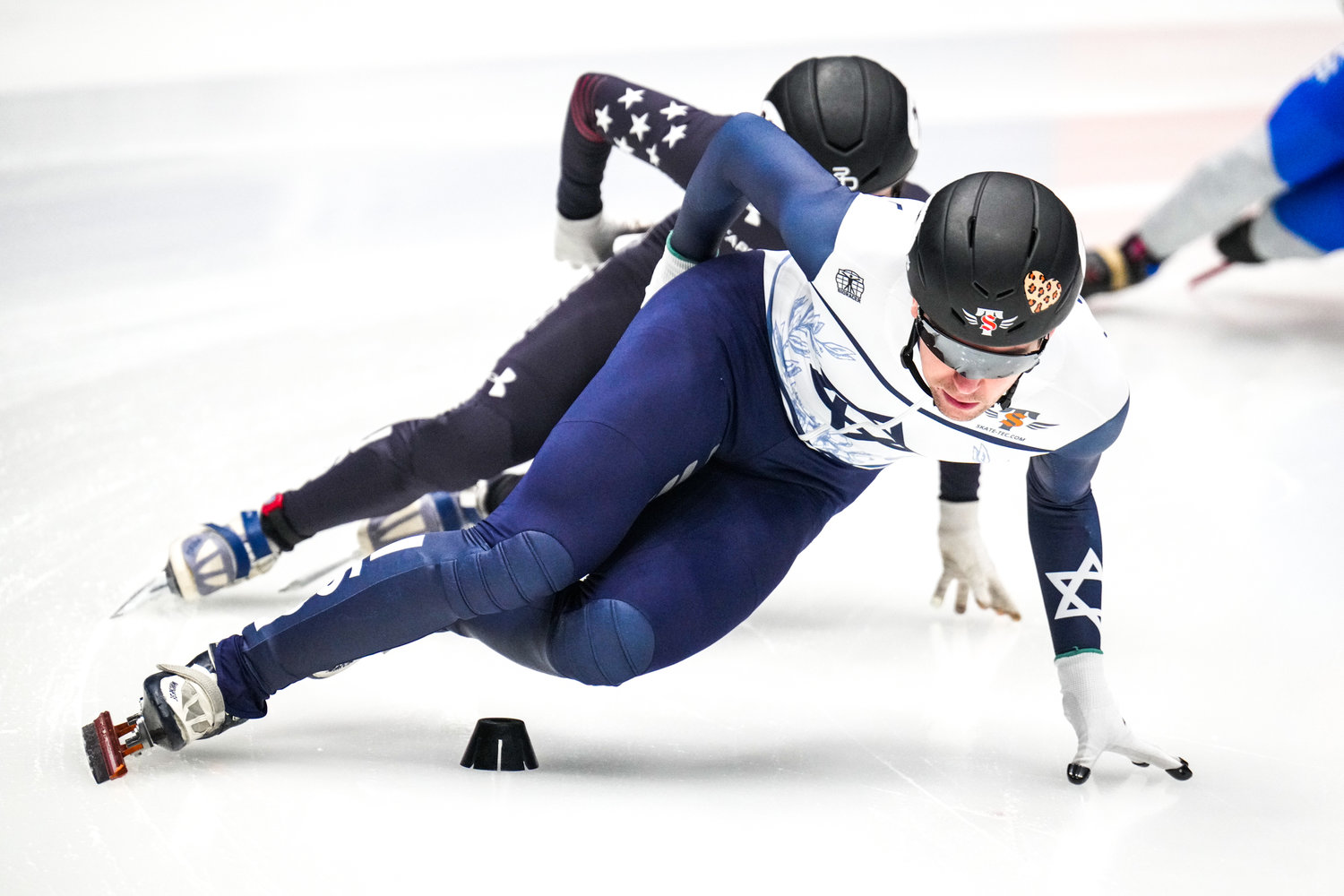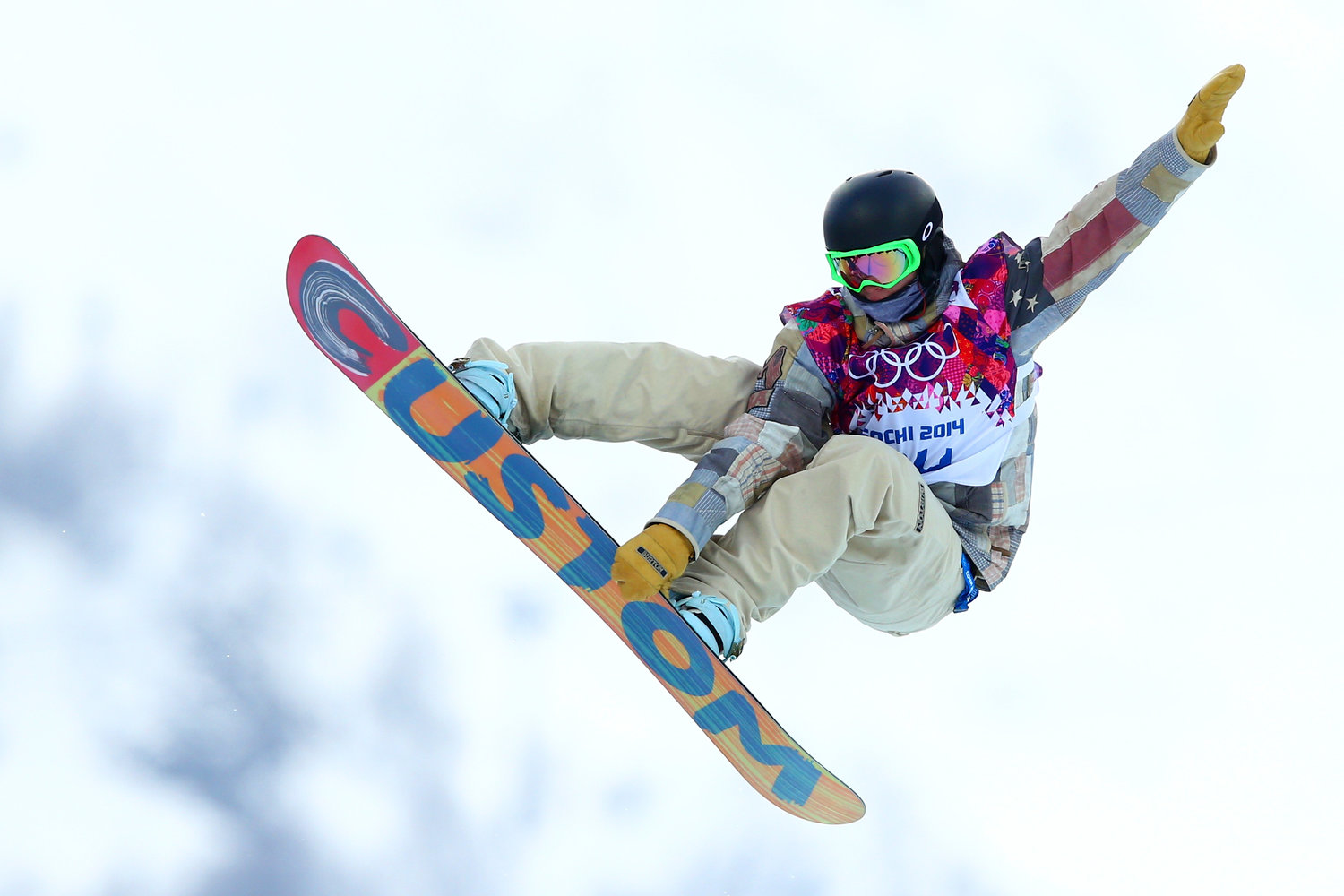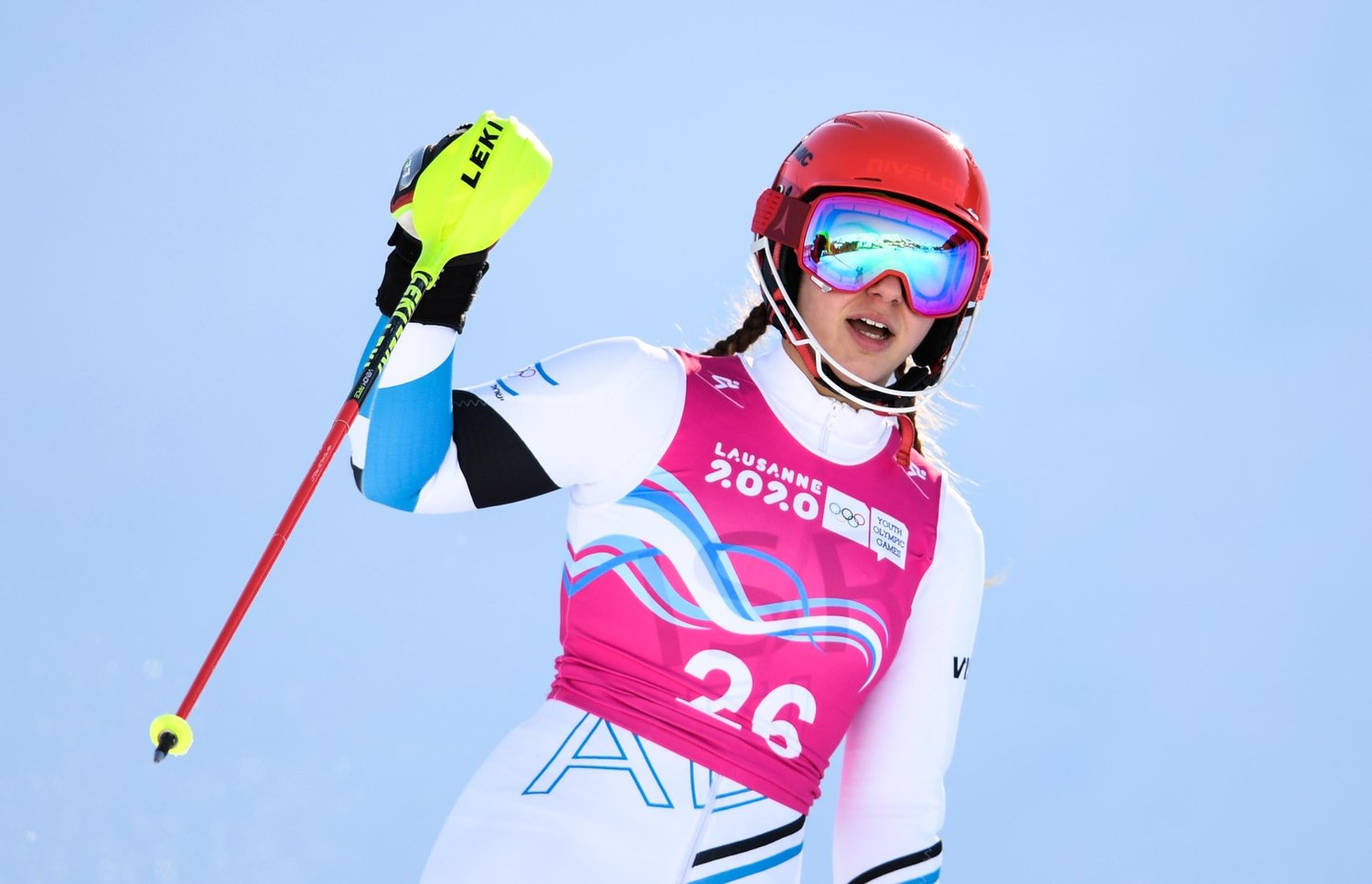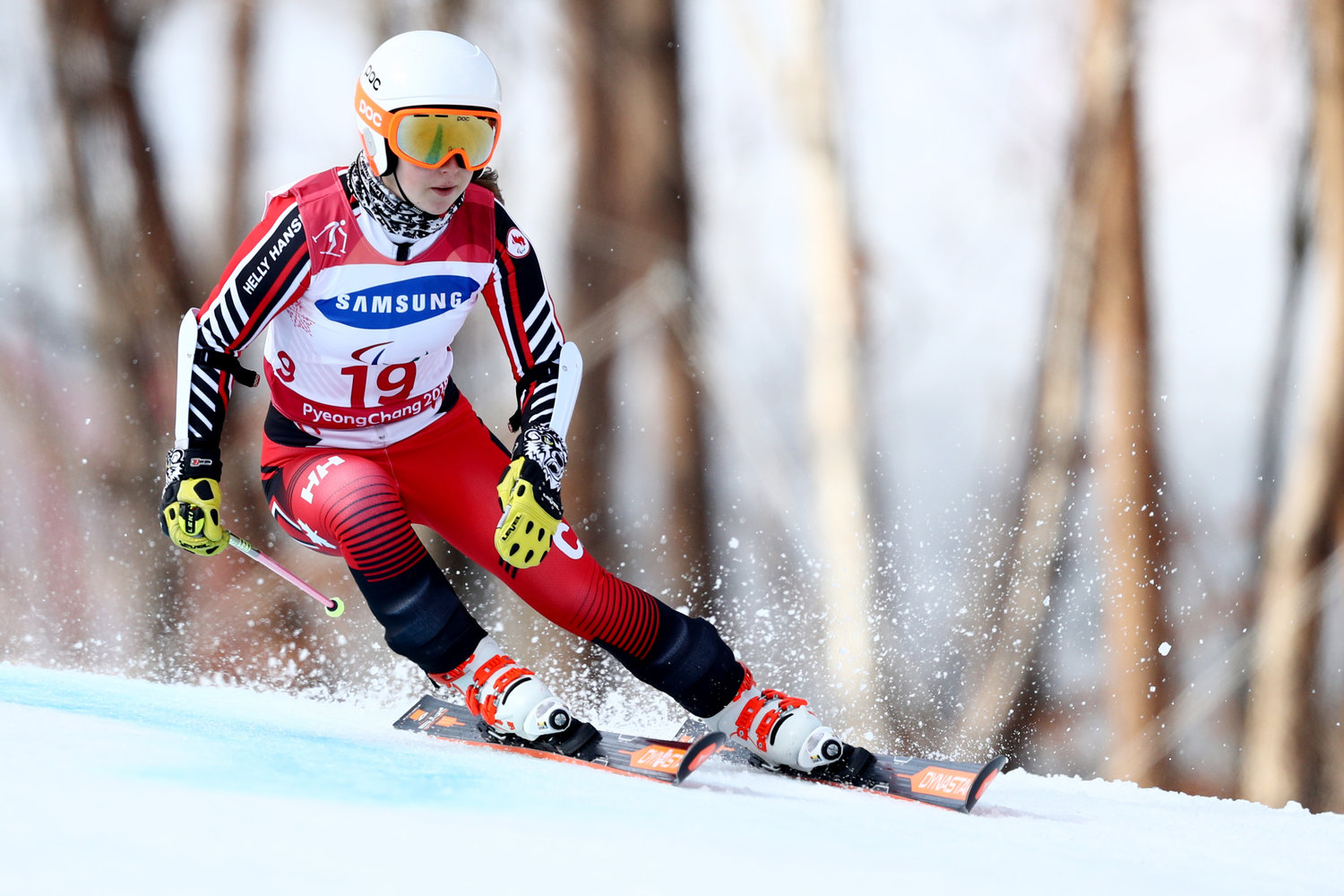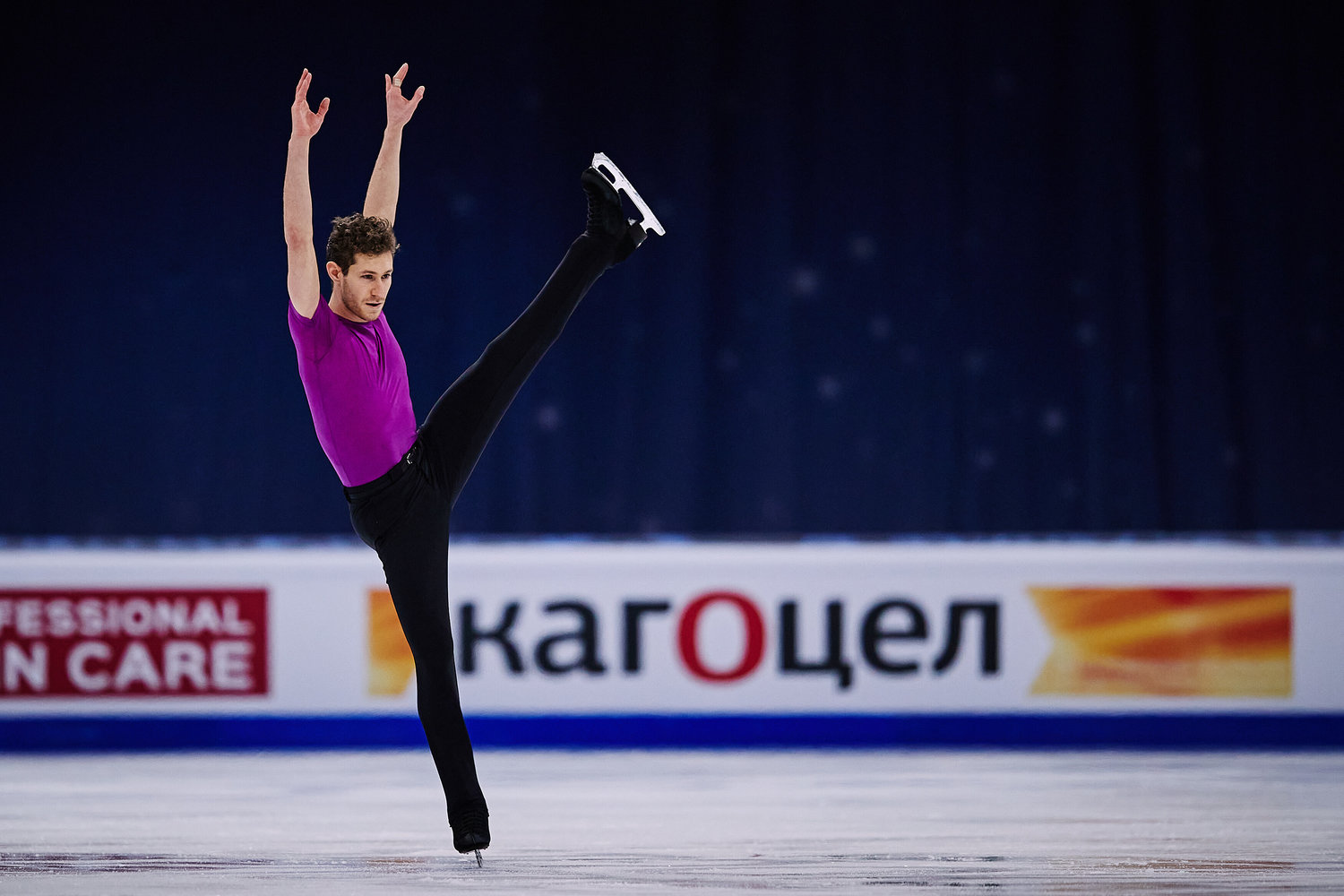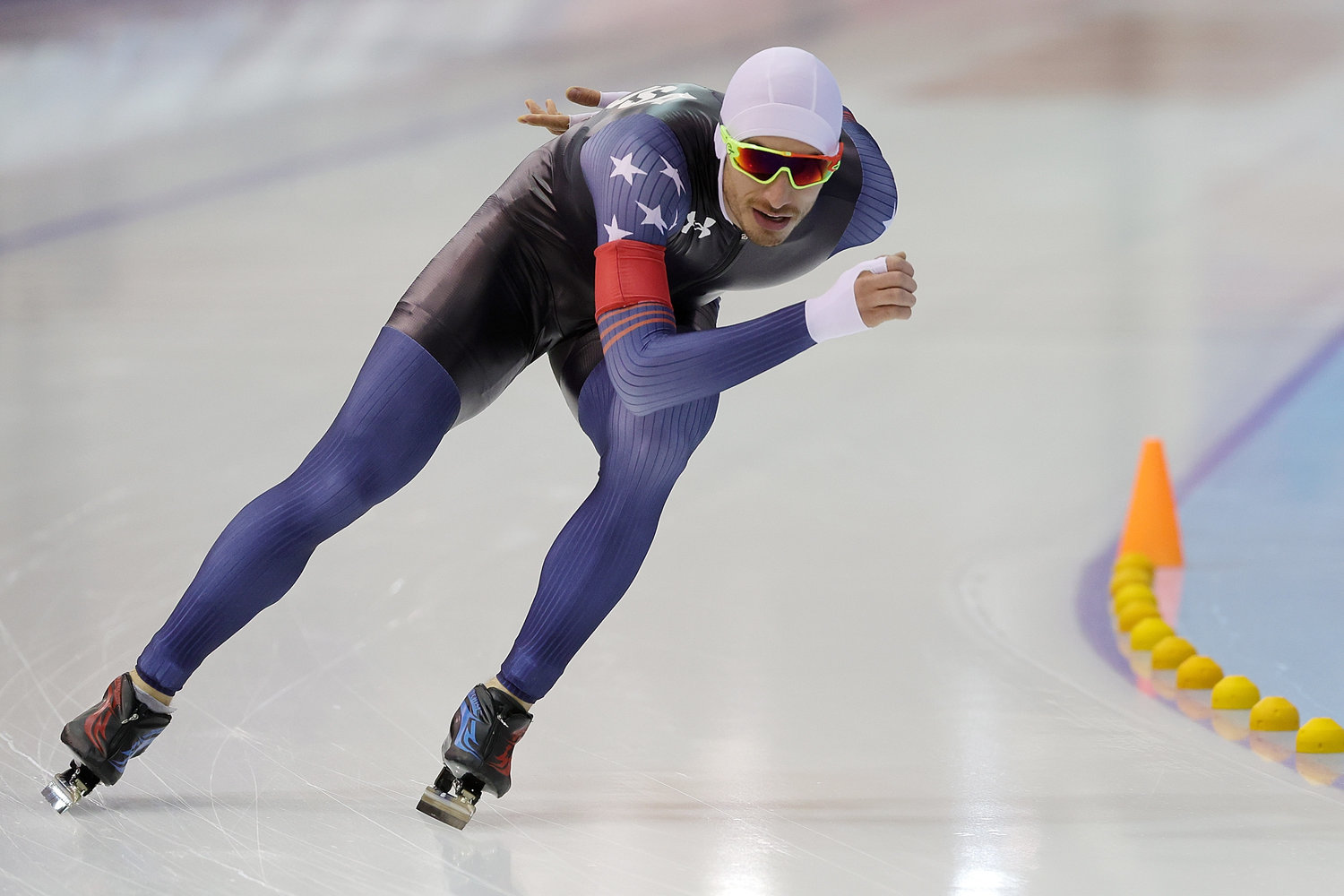and Southeastern Massachusetts
-
- Community
- In our schools
- Arts & Entertainment
- Photo galleries
- World
- Israel
- National
- Business
- Sports
- Israeli Newspapers
- Calendar
-
- Breaking the Glass
- Food
- Education
- Health
- In our schools
- Holidays
- Simchas
- Photo galleries
- Arts & Entertainment
- We Are Read
- Israeli Newspapers
- Candle lighting times
- Marketplace
- Obituaries
-
- The Conversation
- Dr. Stanley Aronson
- Mike Fink
- Larry Kessler
- Nancy Kirsch
- Kara Marziali
- Fran Ostendorf
- Patricia Raskin
- Rabbi James Rosenberg
- Daniel Stieglitz
- d'Var Torah
- Guest columnists
- Letters to the editor
- Podcasts
Jewish athletes to watch at the 2022 Olympics
(JTA) – Despite the continuing COVID-19 chaos and the mounting protests about China’s human rights record, the 2022 Beijing Olympics are proceeding on schedule, just six months after the delayed Tokyo games – and we have your guide to the Jewish athletes who are on their way.
In Tokyo, dozens of Jewish athletes competed, and many clinched medals. The Winter Olympics are typically a smaller affair, with fewer sports and fewer countries participating. Nevertheless, we’re excited to cheer on these Jewish athletes from the United States, Israel and Canada.
The Beijing games begin Feb. 4 and run through Feb. 20, and the Paralympics will be held March 4 through March 13.
Jason Brown
Figure skating, USA
The most well-known Jewish athlete competing in Beijing is 27-year-old figure skater Jason Brown. He competed in the 2014 Olympics in Sochi, winning bronze in the team event with team USA, but narrowly missed competing in 2018 in Pyeongchang (he went as the team’s first alternate). But Brown is back, and qualified after skating to the theme from “Schindler’s List” at the U.S. Figure Skating Championships this month.
“My background, obviously, is Jewish, and the story is so touching,” he said about his decision to skate to the Holocaust movie’s theme. “I grew up learning about the Holocaust and about Oskar Schindler and the stories. I always wanted to skate to it, but it has to be when I’m at the level, maturity-wise, that I’m really ready to skate to it.”
(The “Schindler’s List” music is heard regularly in international competition, but often accompanying non-Jewish skaters. German figure skater Nicole Schott skated to it at the Olympics in 2018, as did Russian Yulia Lipnitskaya in 2014.)
Hailey Kops and Evgeni Krasnopolski
Pairs skating, Israel
A year ago, 19-year-old New Jersey native Hailey Kops was studying in a Jerusalem seminary on her gap year before heading to nursing school, thinking her competitive skating days were over.
Israel’s team gave her a call and an opportunity in June, and just over six months later, she’s heading to Beijing. She teamed up with Evgeni Krasnopolski, a 33-year-old Olympic veteran who was born in the Soviet Union and moved to Israel when he was 3 years old. He will be Israel’s flag-bearer at the opening ceremony on Feb. 4.
This is the first Olympics for Kops, who is Modern Orthodox – an extreme rarity in Olympic competition – but skates on Shabbat.
“From a young age, I integrated the two. It is definitely normal for me,” she said. “When there’s a will, there’s a way,” she told the Jewish Telegraphic Agency.
Emery Lehman
Speed skating, USA
Emery Lehman’s first love was hockey, which he picked up at 6 years old, growing up in the Oak Park Chicago suburb. A few years later, his Jewish mom – who as of 2018 was a development executive for the American Friends of the Hebrew University of Israel – convinced him to give speed skating a try, and he excelled. (He hasn’t given up hockey, either – in college at Marquette University, he played defense for their club hockey team.)
At age 13, he became a national champion, and at 17, he qualified for the 2014 Winter Olympics. He competes in the 5,000 and 10,000 meter races. At the 2018 Olympics, he also competed in the Team Pursuit race. As he wrote on Instagram after qualifying for Beijing, “About time I’m one of the old guys on the team.” He’s only 25.
Taylor Gold
Snowboarding, USA
Taylor Gold is going for gold at the Beijing Winter Olympics. How many times do we think he has heard that joke?
For Gold, 28, this is his second Olympics – he competed in Sochi, and got injured during the 2017-2018 season, which forced him to miss Pyeongchang. At the 2018 Games, his younger sister Arielle Gold – also a snowboarder – won bronze in the women’s halfpipe event. Arielle retired and won’t be competing this Olympics cycle.
The Golds come from a sporty Jewish family: born and raised in Steamboat Springs, Colorado, their father, Ken, was a professional moguls skier. In Beijing, Gold will be one of 14 athletes from Colorado. He’s involved in Protect Our Winters, a nonprofit working to fight climate change.
Josh Ho-Sang
Hockey, Canada
This season, Canadian Jewish hockey player Josh Ho-Sang had an impressive debut with the Toronto Marlies, the top affiliate team of the Toronto Maple Leafs. Ho-Sang, 26, is Jamaican and Chinese on his father’s side and Russian-Jewish and Swedish on his mother’s side. “I’ve grown up Jewish,” Josh once said in an interview. “I have always celebrated the Jewish holidays like Hanukkah and the High Holidays with family and friends.”
Since the NHL announced that its players will not participate in the Games, it has left Olympic roster spots open for rising stars like Ho-Sang. According to one analysis, “It’s entirely possible that following his Olympic appearance that the Leafs will get him under contract.” Could Beijing be the start of Ho-Sang’s NHL career?
Alexei Bychenko
Figure skating, Israel
Bychenko was born in Kyiv, Ukraine and represented his native country in international competition until 2009. But in 2010, he became an Israeli citizen and started skating under the Israeli flag, becoming the first Israeli skater to win a medal at the European Championships – a silver in 2016.
Bychenko competed for Israel in the 2014 and 2018 Winter Olympics, and the 33-year-old is set to return to the Olympic stage this February. In 2018, Bychenko served as Israel’s flag bearer at the Pyeongchang Opening Ceremonies and placed 11th in the men’s competition. He’s looking to place higher this time around – he will skate to “Words” by Israeli singer-songwriter Harel Skaat for his short program and the theme from “Pirates of the Caribbean” for his free skate.
Devon Levi
Hockey, Canada
Joining Josh Ho-Sang on the Canadian men’s hockey team is Devon Levi, a 20-year-old goalie from the Jewish Montreal suburb of Dollard-Des-Ormeaux, where he attended Hebrew Foundation School, a Modern Orthodox Jewish day school. He currently plays for Northeastern University Huskies, and his spot on the Olympic squad makes him the first men’s hockey Olympian from the Boston school.
In the words of the Northeastern Hockey blog, “Levi is in the midst of the greatest goaltending season in Northeastern program history, and one of the greatest seasons in NCAA history. He has played every minute of every game for the Huskies.” He has notched nine shutouts so far this season, helping the Huskies achieve a 16-5-1 record.
This isn’t Levi’s first time representing Canada – most recently, he played in the 2021 World Junior Championship. It’s unclear whether or not he will be the starter on the Olympic team, as the two other goaltenders are both older and more experienced.
Noa and Barnabas Szollos
Skiing, Israel
Thoughts of Israel usually involve blazing desert sunlight and humidity – not skiing.
But the Szőllős siblings are looking to change that. Known as Israel’s “ski siblings,” they were born in Budapest, Hungary, and now train in Austria. There are three of them: Noa, Barnabás, and Benjamin, who all compete for Israel in the FIS Alpine World Cup. (Benjamin did not make the Beijing cut.) Their father Peter used to ski professionally for Hungary as well, before earning Israeli citizenship.
At age 16, Noa won two medals at the Youth Olympic Games, becoming the first Israeli athlete to medal at a winter Olympic event. Though it was the youth games, she said, “I’m very proud to be the first champion from Israel to reach the Winter Games podium. It’s such a strong feeling to be able to represent the country in this way.”
Now 18, Noa and her brother Barnabas, 23, will both ski for Israel in Beijing.
Jason Demers
Hockey, Canada
The third Jewish player on Canada’s hockey team is Jason Demers, a 33-year-old defenseman who spent time in the NHL but currently plays in Russia’s Kontinental Hockey League. He discovered his Jewish roots later in life on his father’s side of the family.
Demers made his NHL debut back in 2009, playing for the San Jose Sharks, and represented Team Canada for the first time in 2013 during an NHL lockout.
Thanks to Demers, Ho-Sang and Levi, Canada men’s hockey team will be the most Jewish team in Beijing.
Mollie Jepsen
Para alpine skiing, Canada
Mollie Jepsen is a phenom: she medalled in four out of the five events she competed in at the 2018 Pyeongchang Paralympics.
The West Vancouver, British Columbia native was born missing fingers on her left hand, and competes under the LW6/8-2 classification, for skiers with an upper extremity issue. This means she skis with only one pole.
Since her Paralympic debut, she was also diagnosed with Crohn’s disease, and missed an entire season. But she has had a remarkable comeback season ahead of the 2022 Paralympics, so don’t be surprised to see Jepsen on the podium in Beijing.
David Warsofsky
Hockey, USA
Warsofksy, 31, has played for four different NHL teams, but currently plays in Germany for ERC Ingolstadt – he’s another player benefiting from the NHL’s decision not to let their players enter the Games.
The former captain of the U.S. Under-18 national team in 2007-08 is married and has a one-year-old son; when he’s not competing in Germany, he resides in Denver.
Vladislav Bykanov
Speed skating, Israel
Vladislav “Vlad” Bykanov, like many of his fellow Israeli winter Olympic teammates, was born in the former Soviet Union, in Ukraine. He moved to Israel in 1994, at age 5, and now splits his time between Kiryat Shmona, Israel, and Heerenveen, in the Netherlands.
Vykanov started speed skating at age 8 and competed for Israel at the 2014 and 2018 Winter Olympics. In 2014, he was given the honor of serving as Israel’s flag bearer in the opening ceremony. He skates in the 500 meter, 1,000 meter, and 1,500 meter races; his best result was 19th place in the 500 meter in Sochi.
Keywords
Olympics 2022

401 Elmgrove Avenue
Providence, RI 02906
(401) 421-4111

